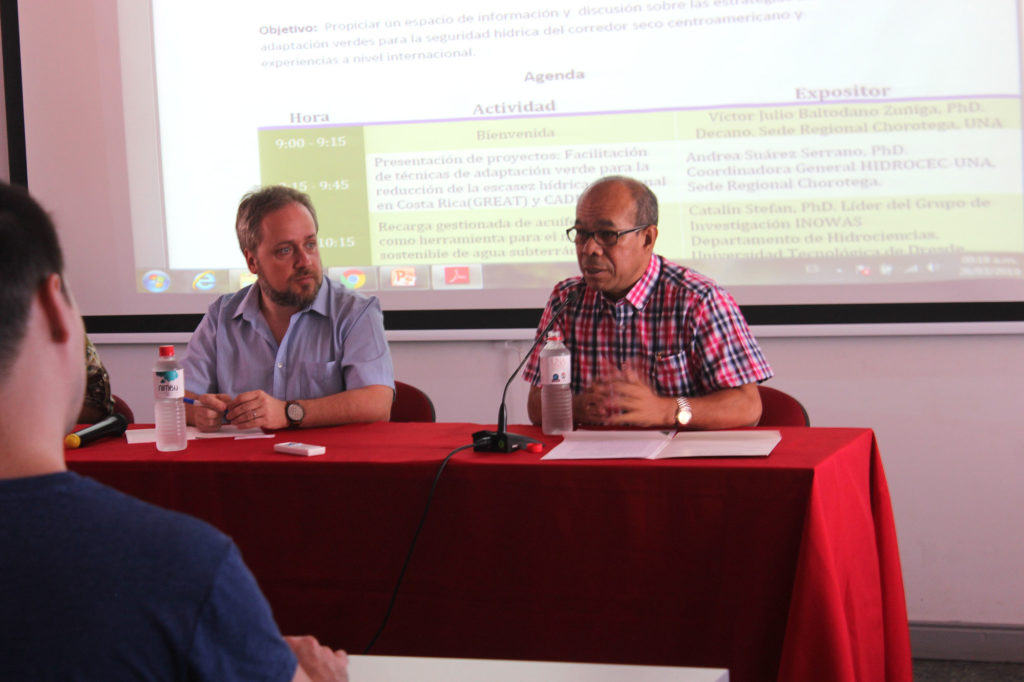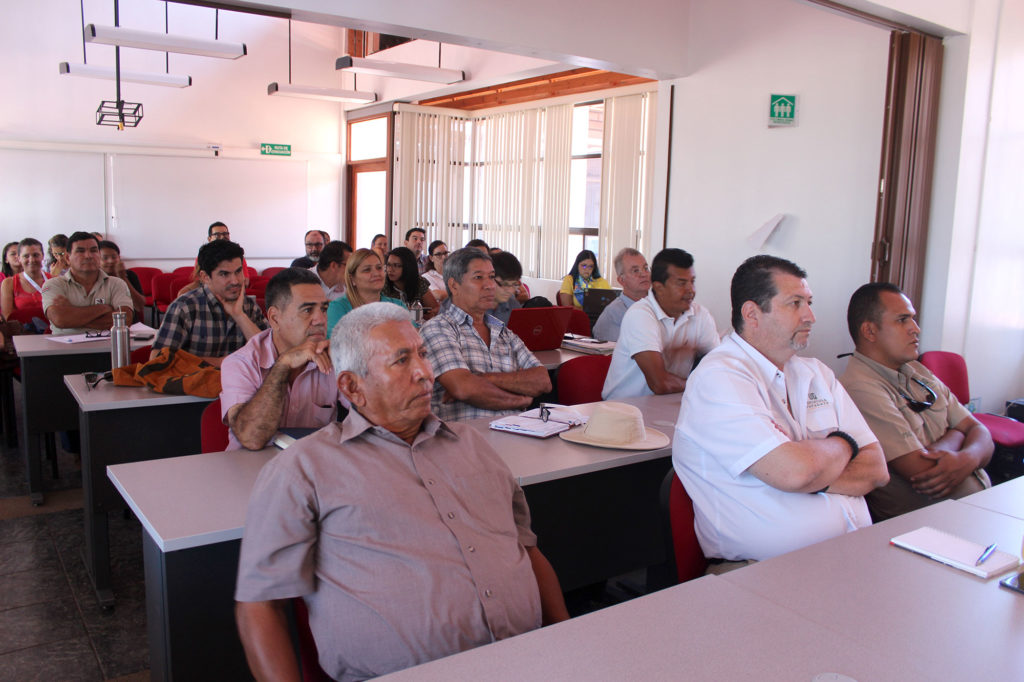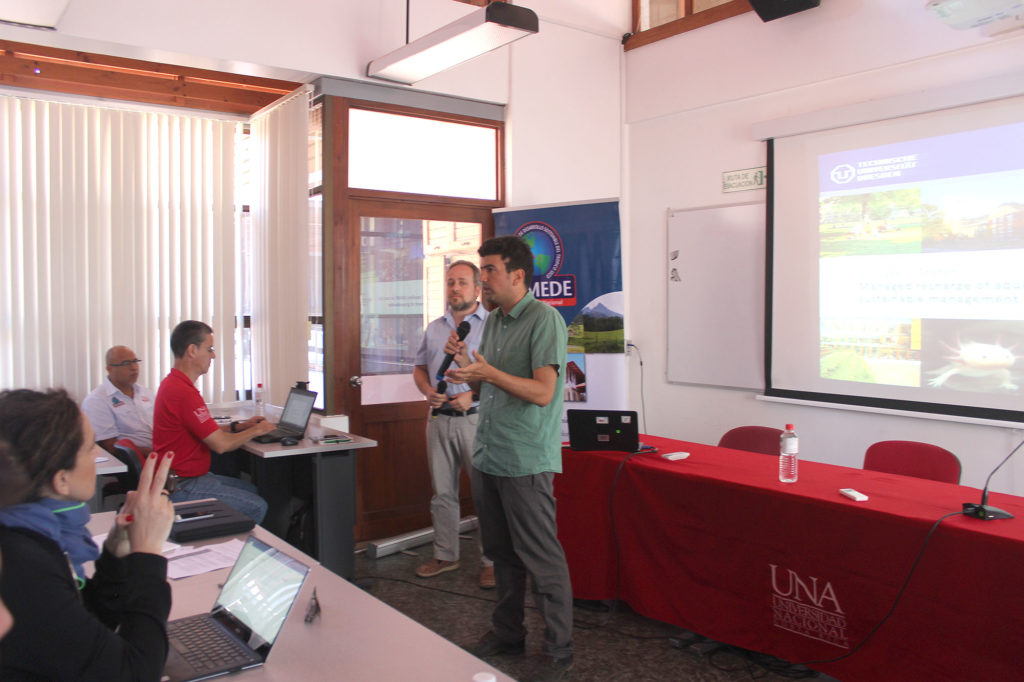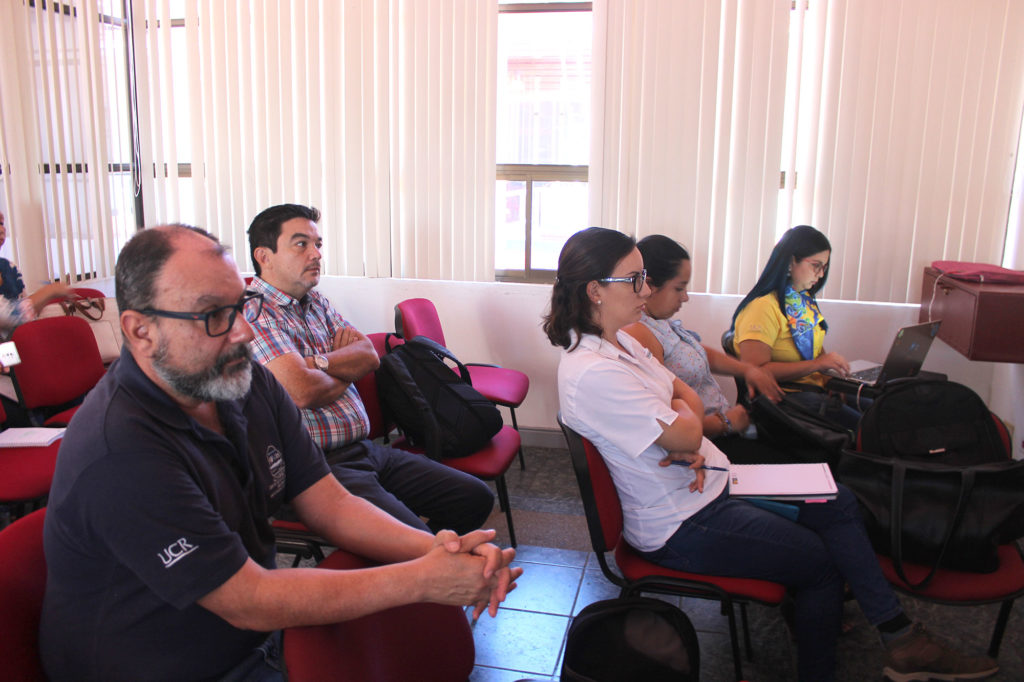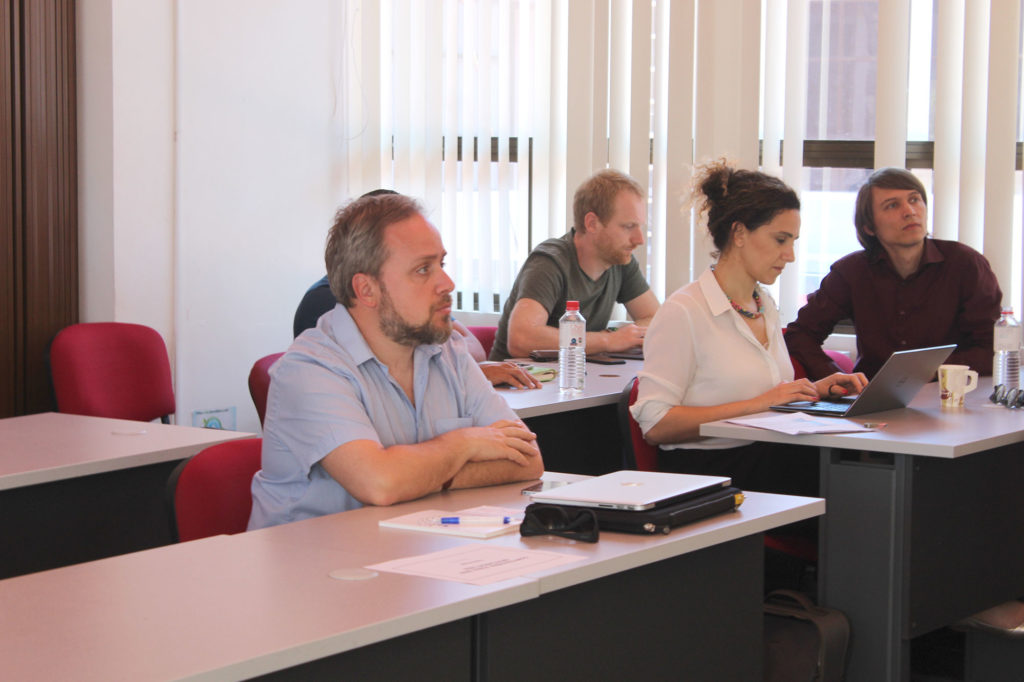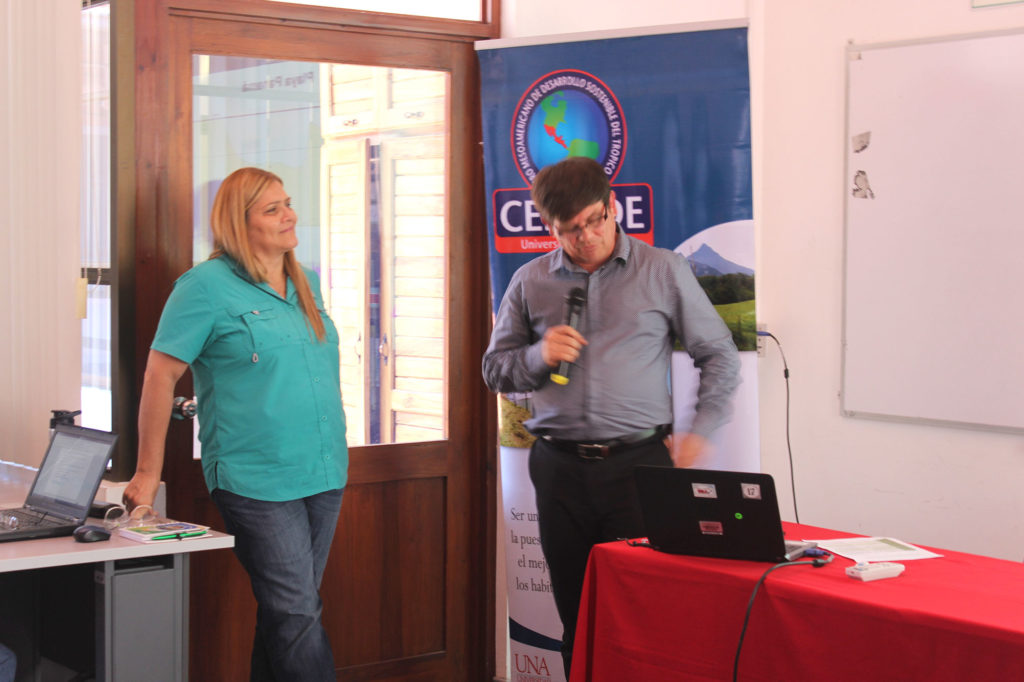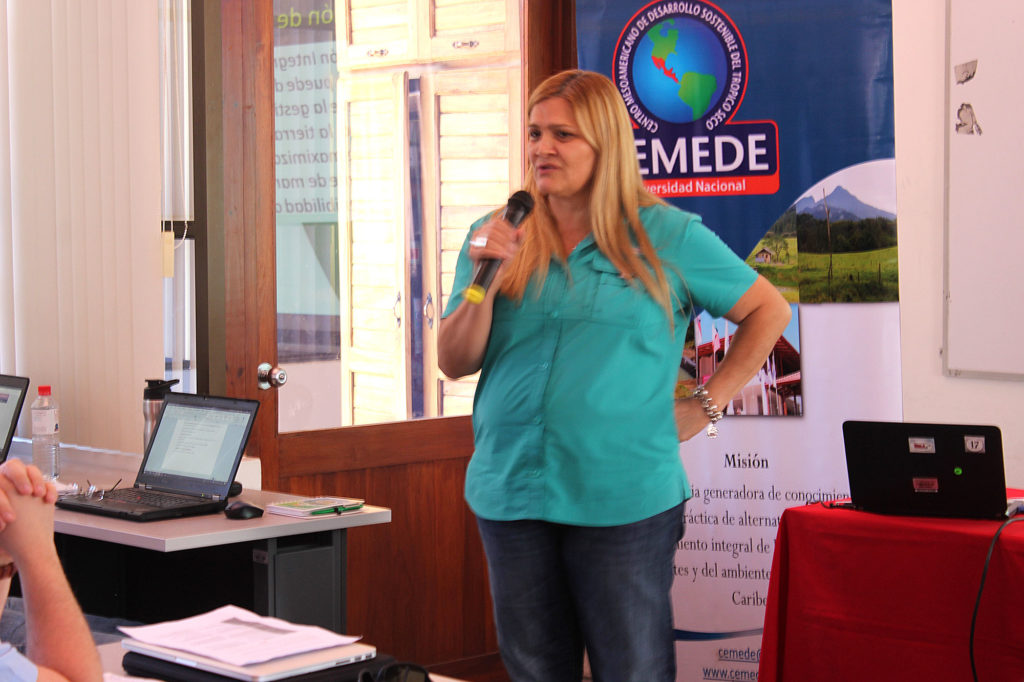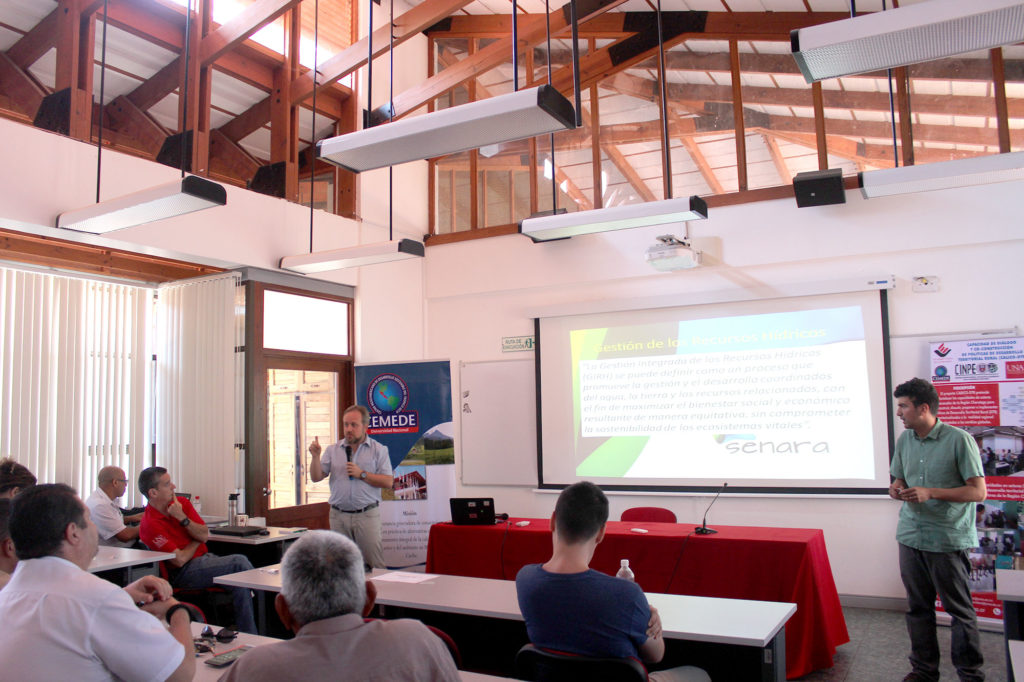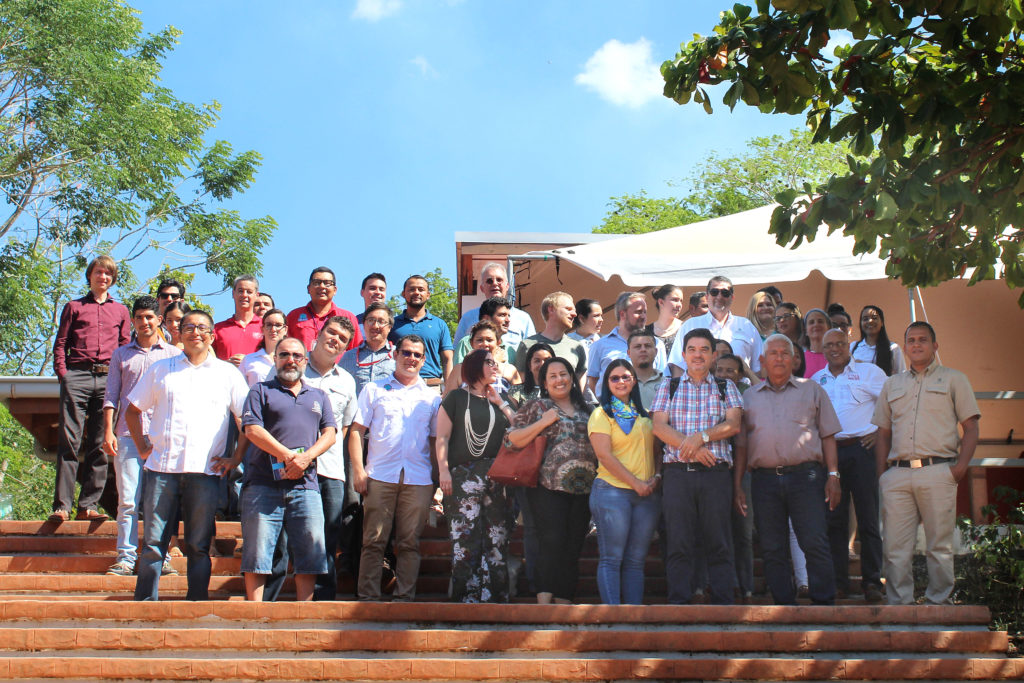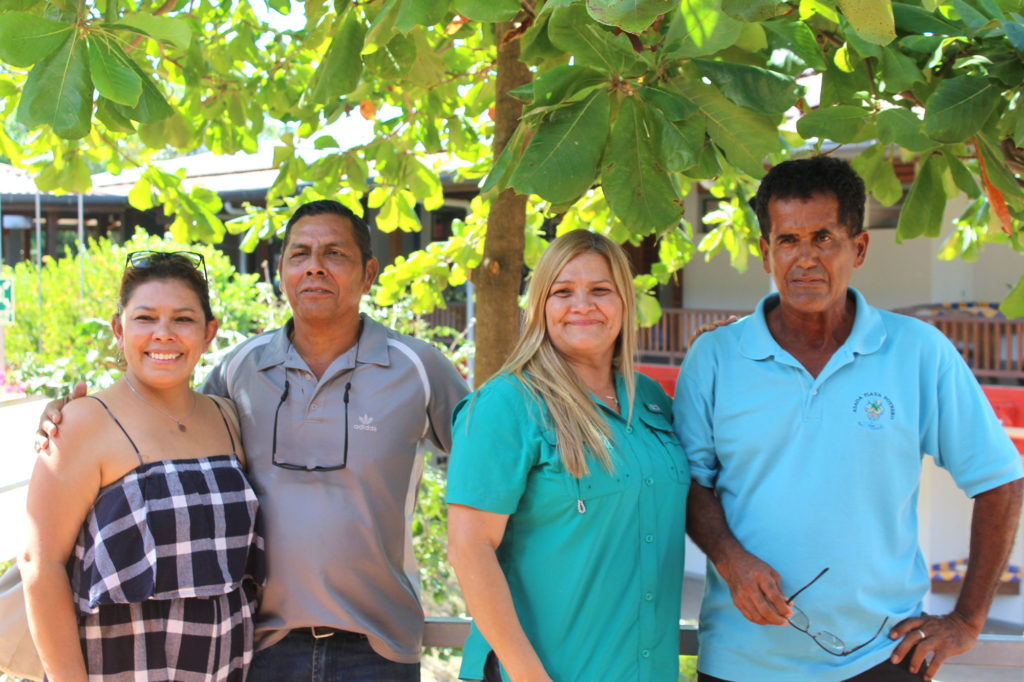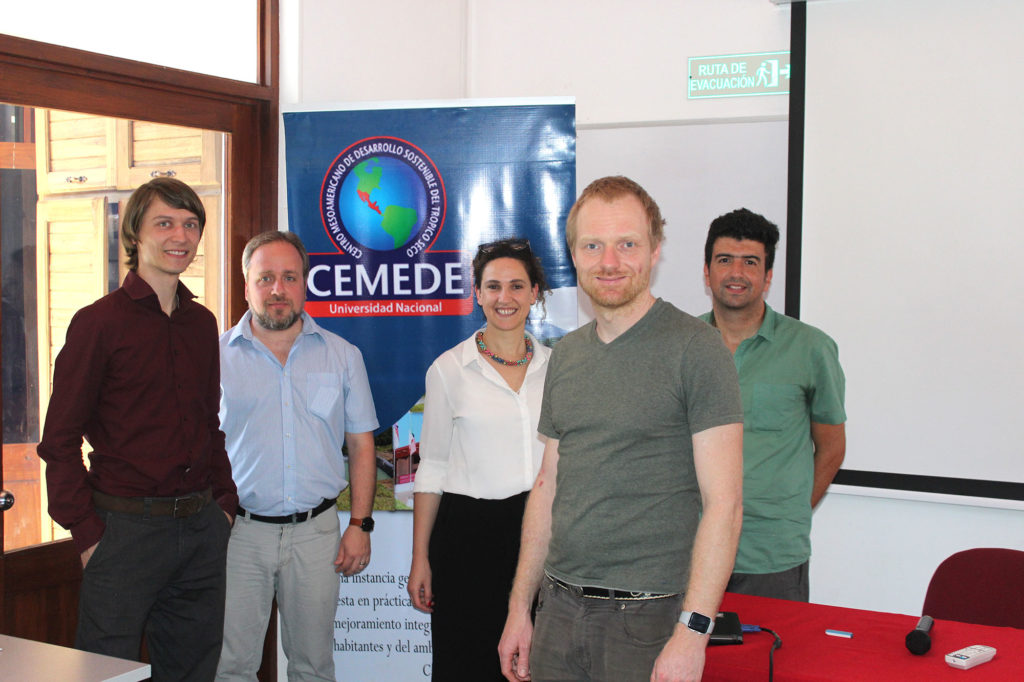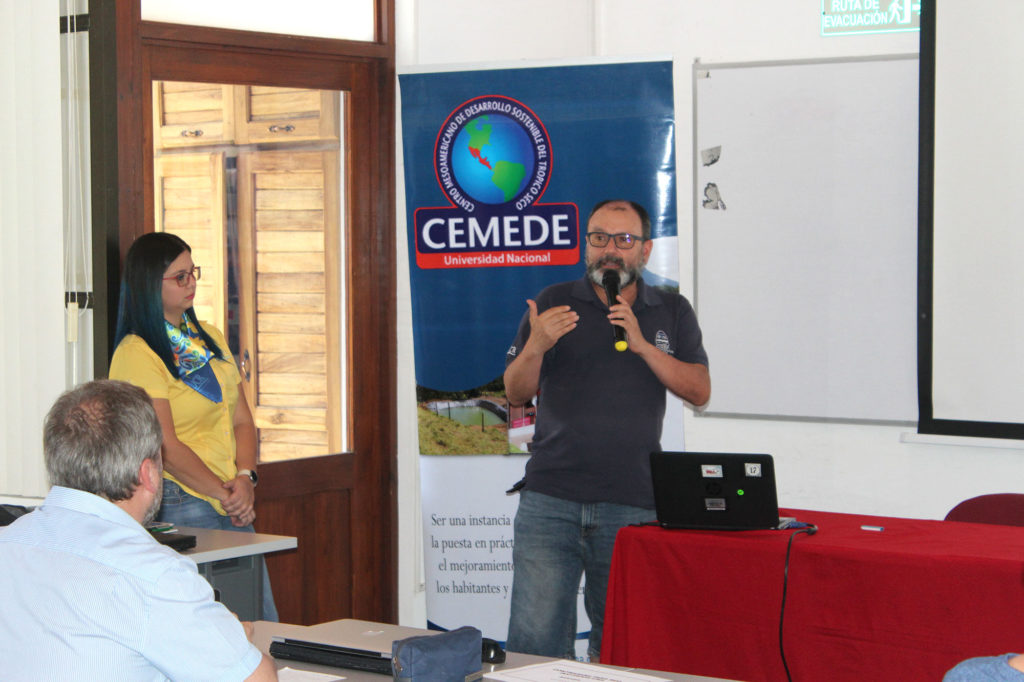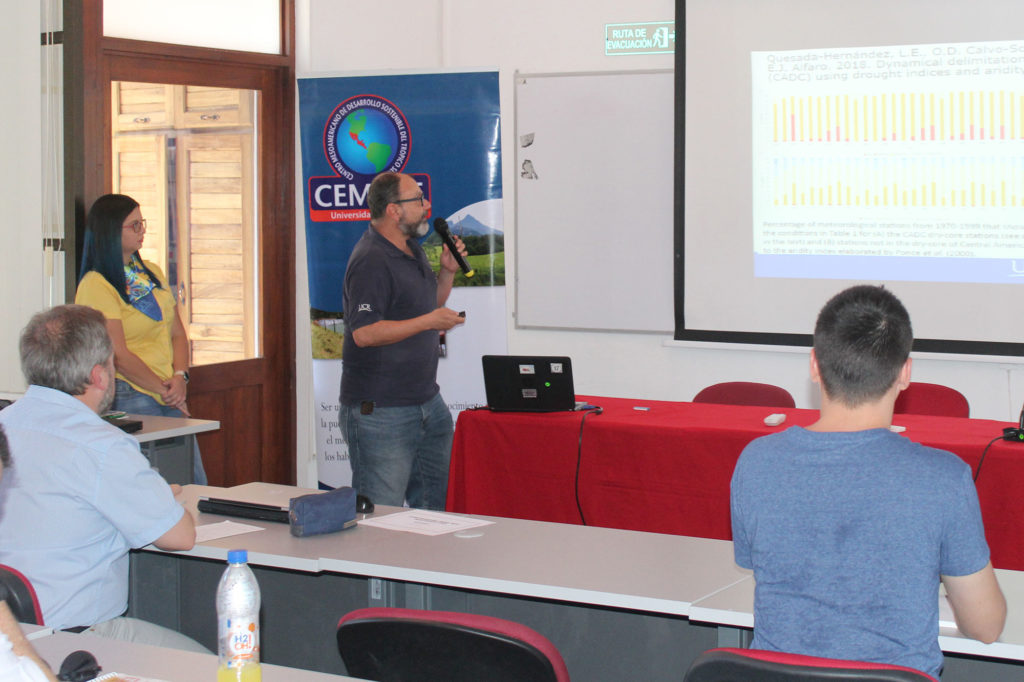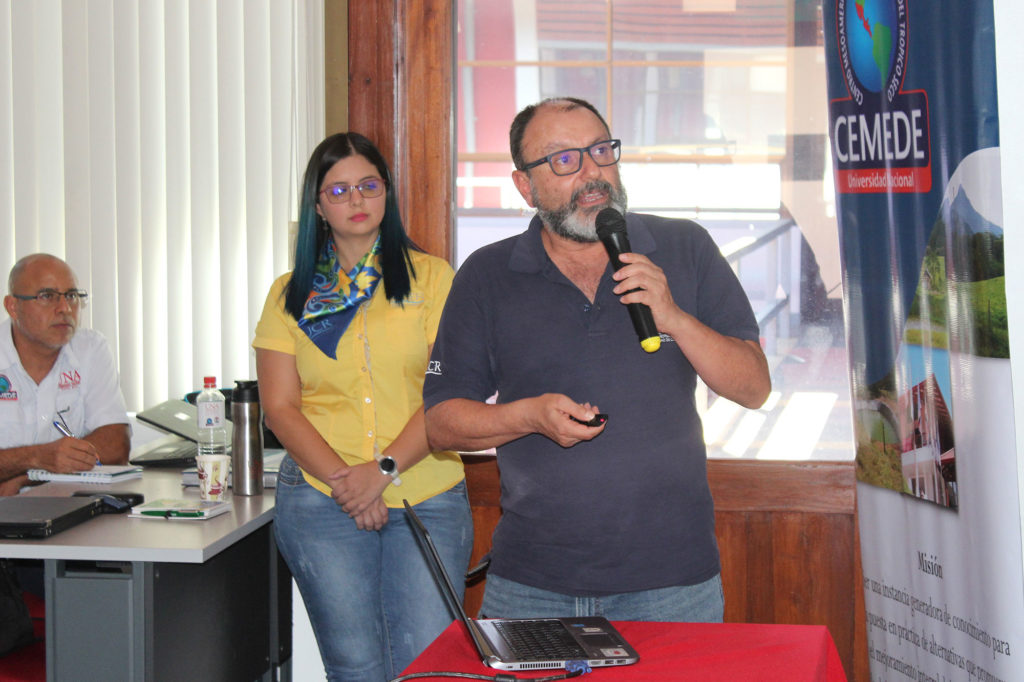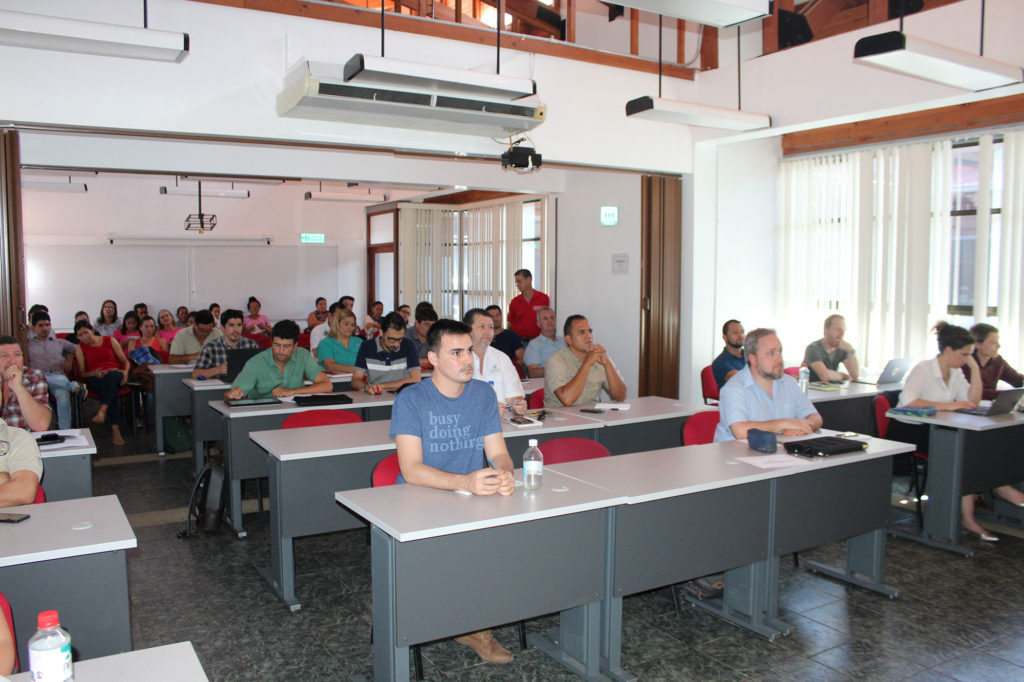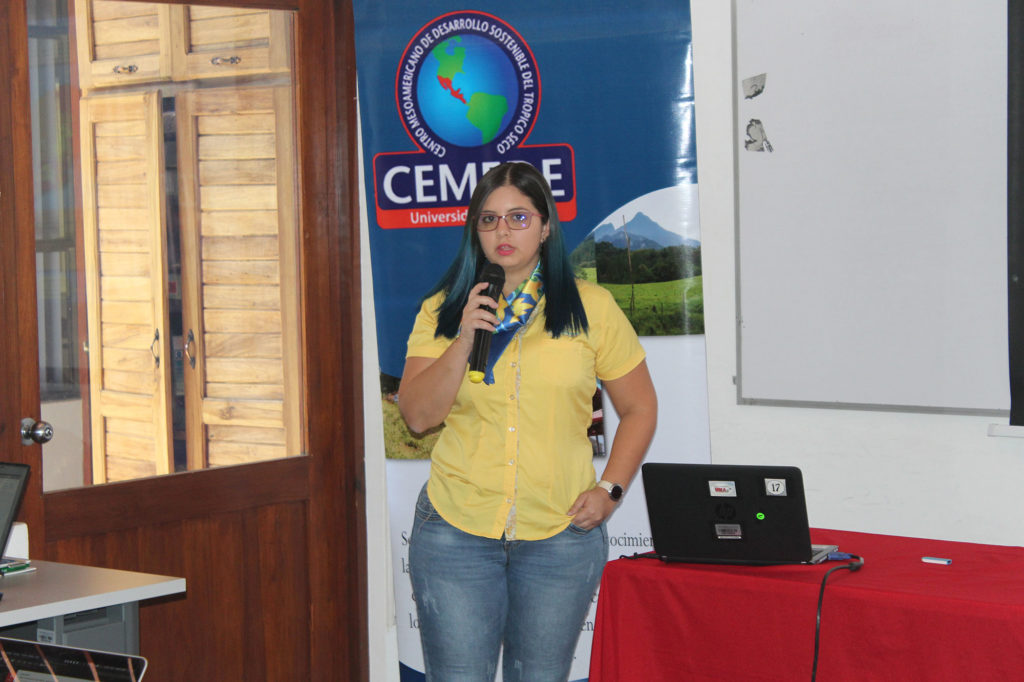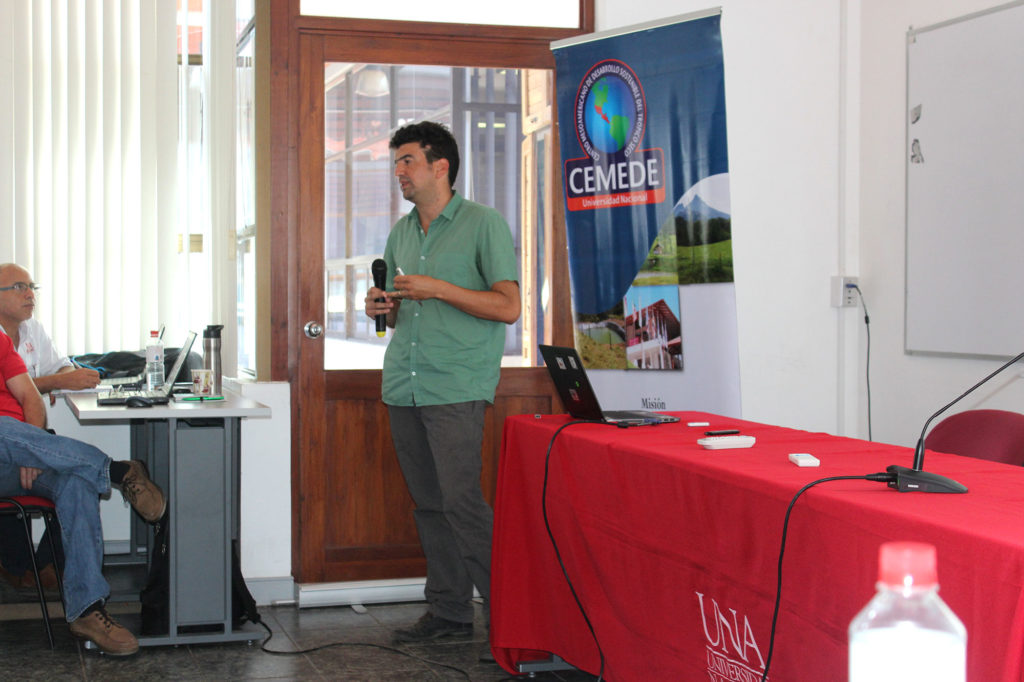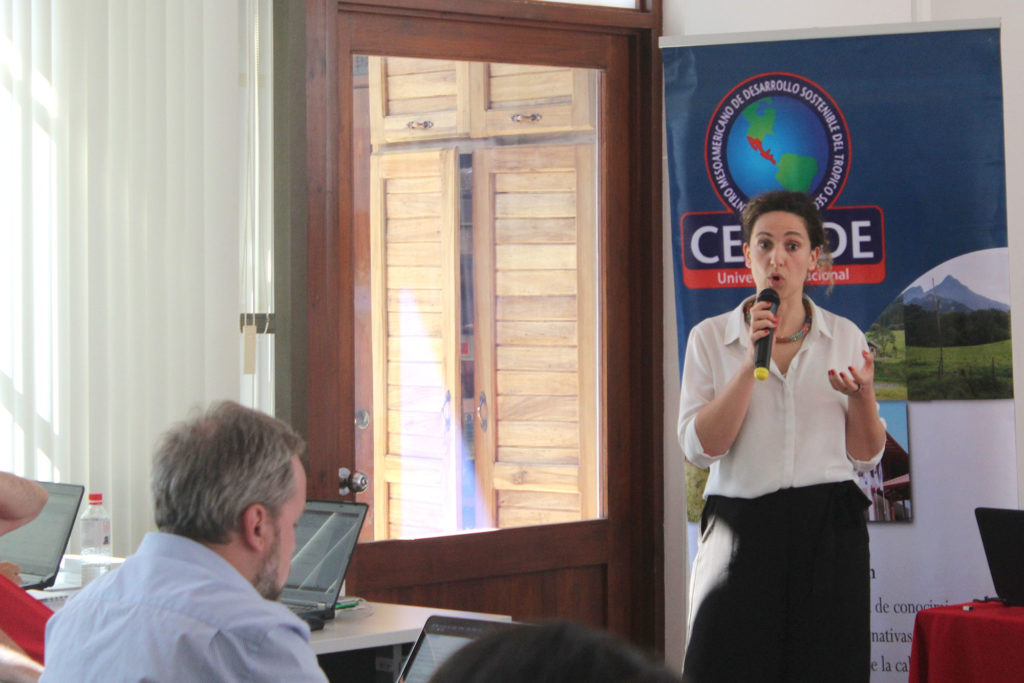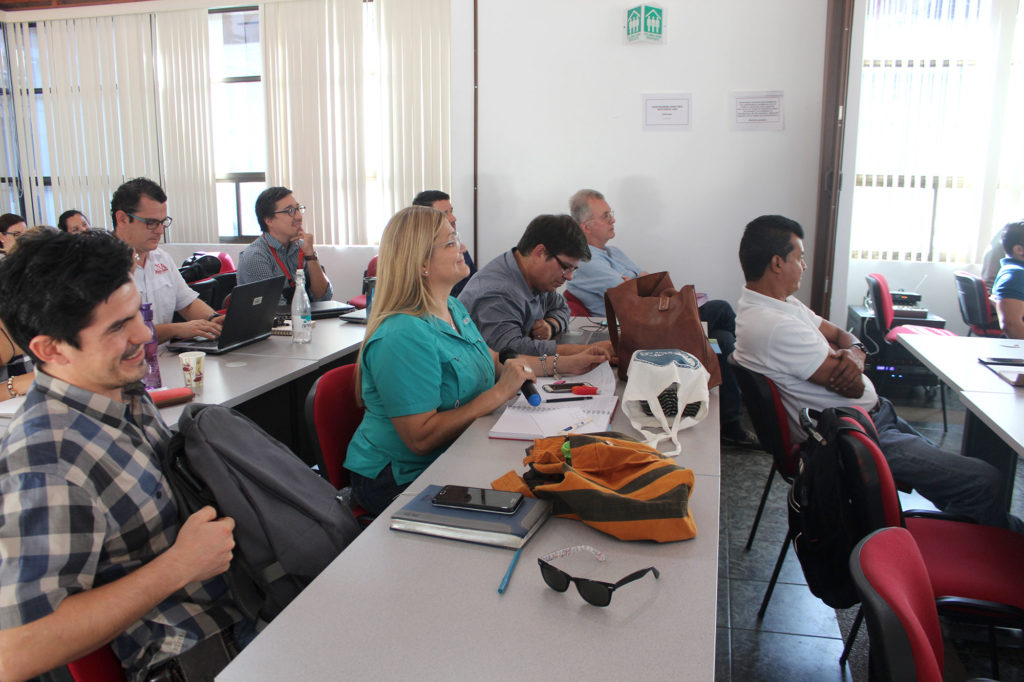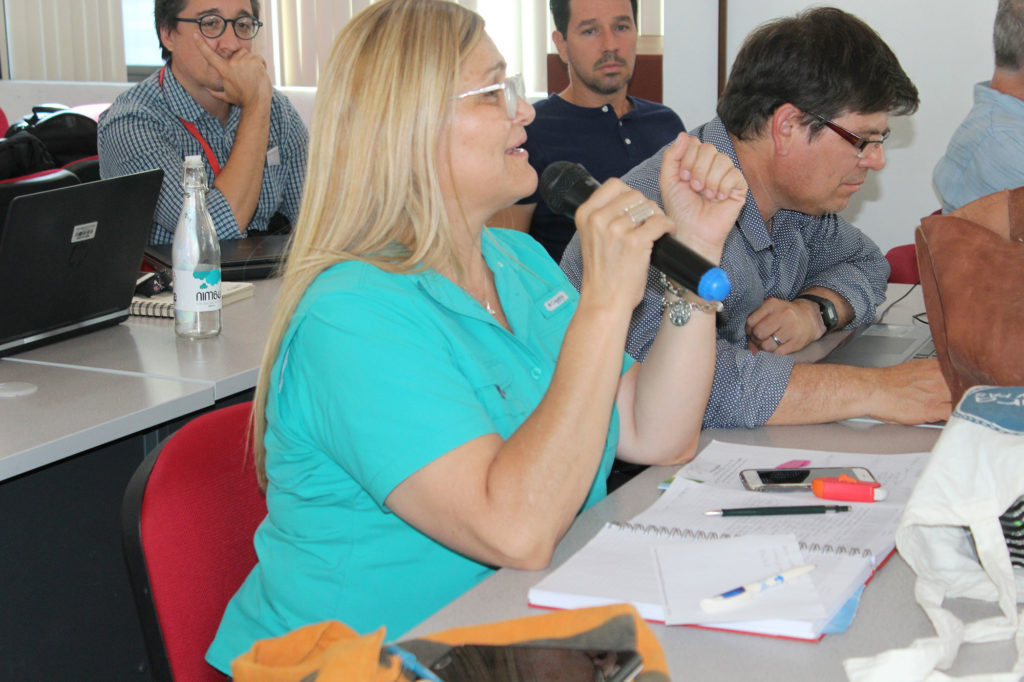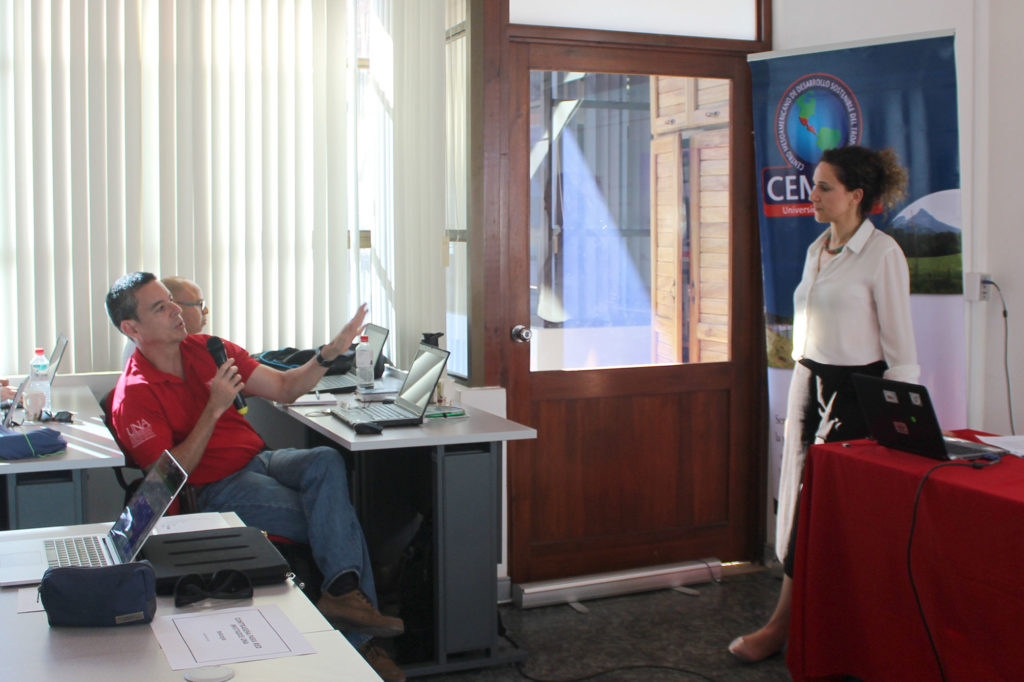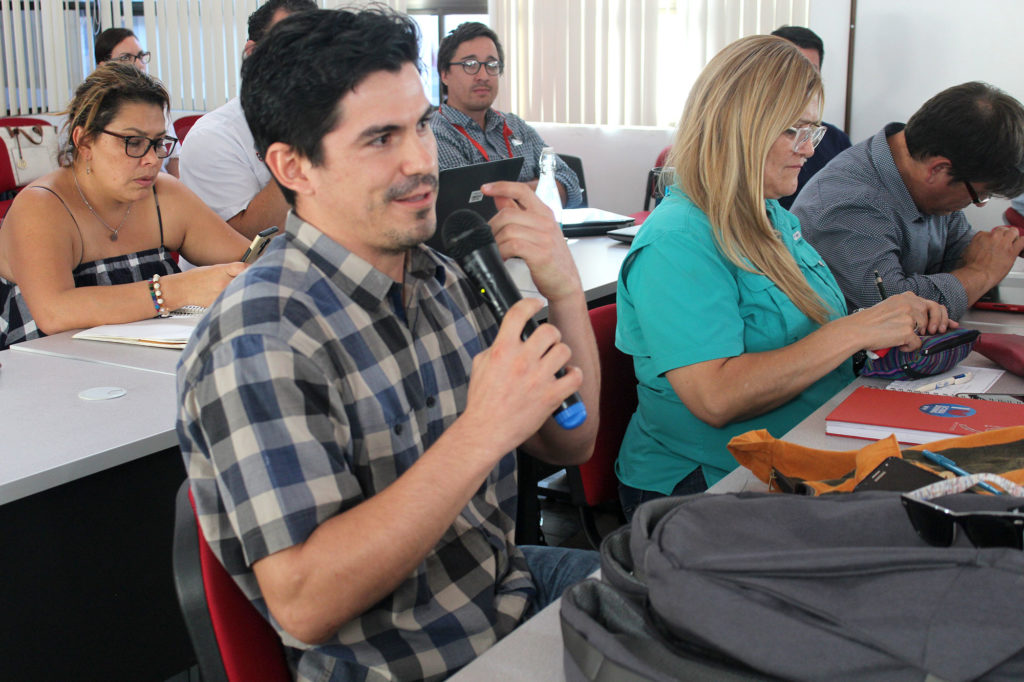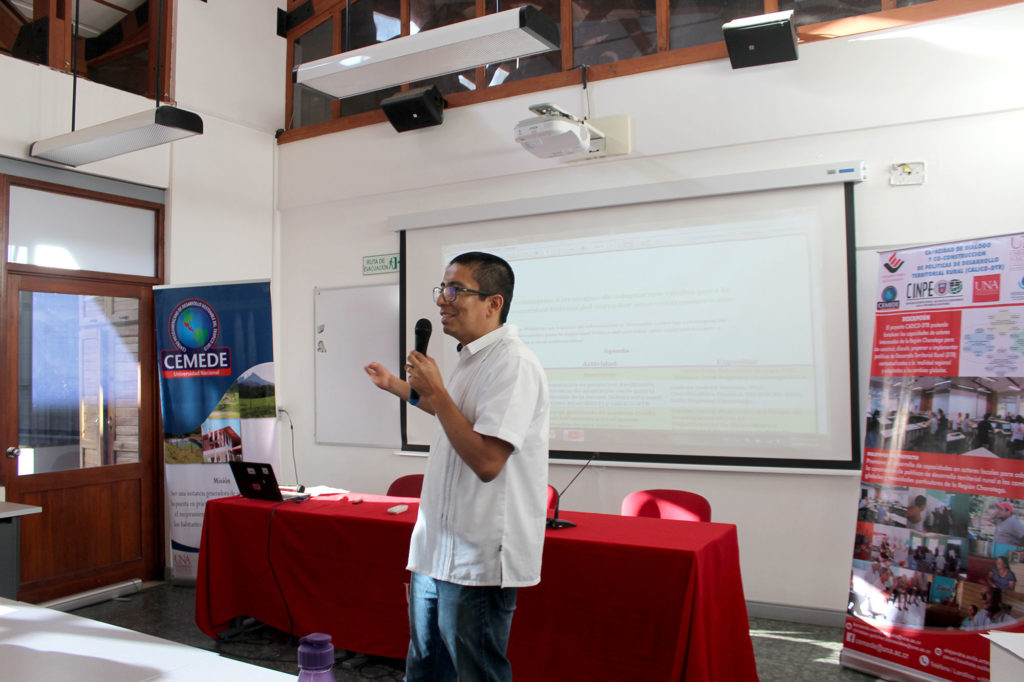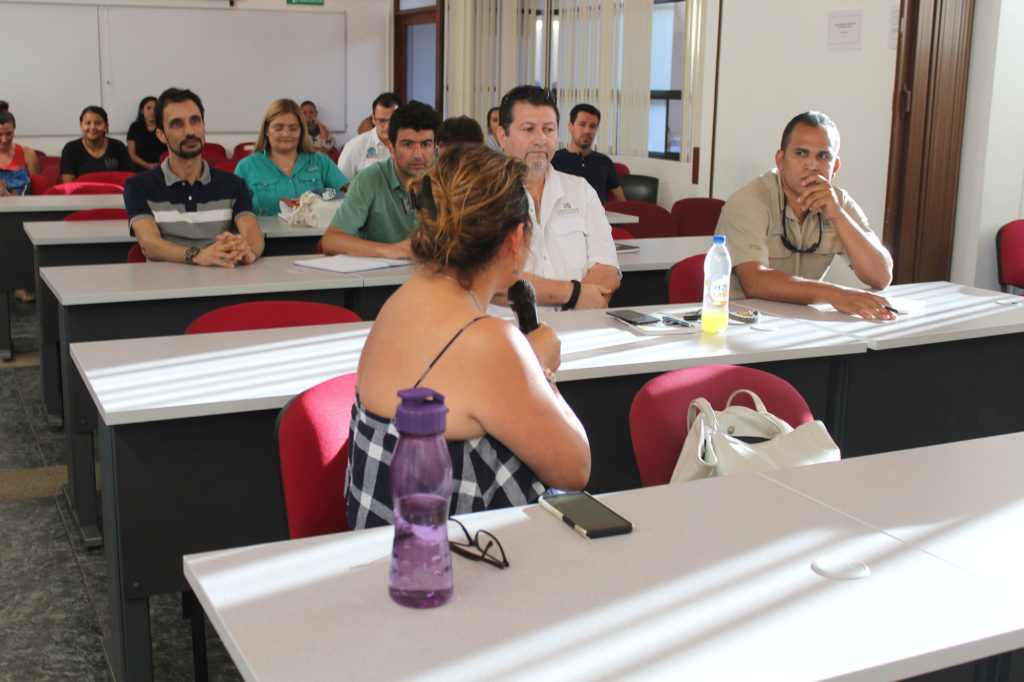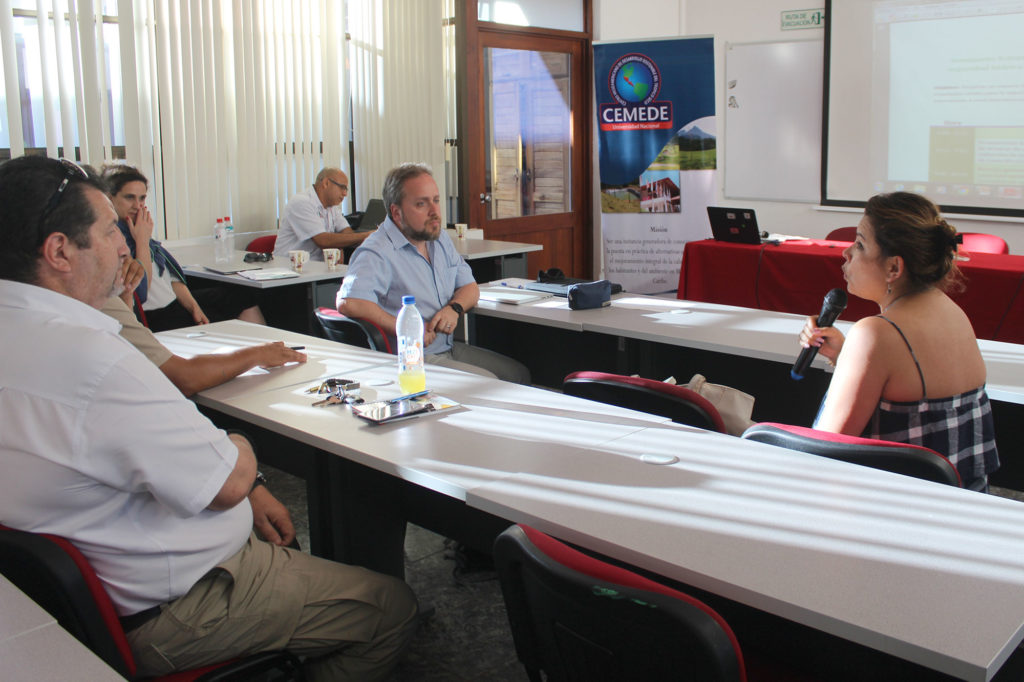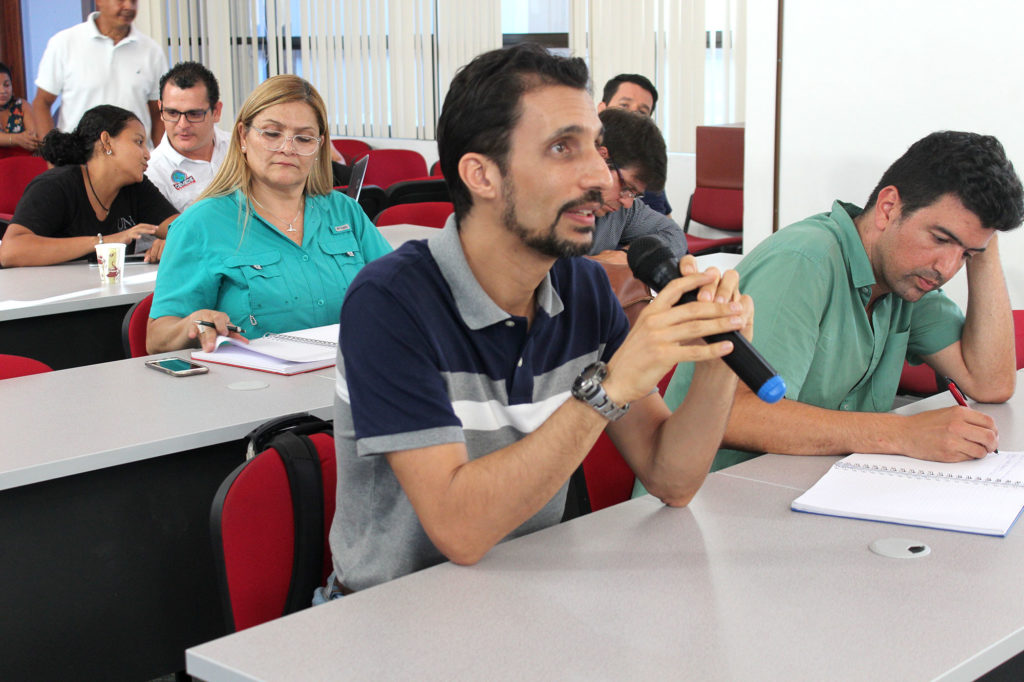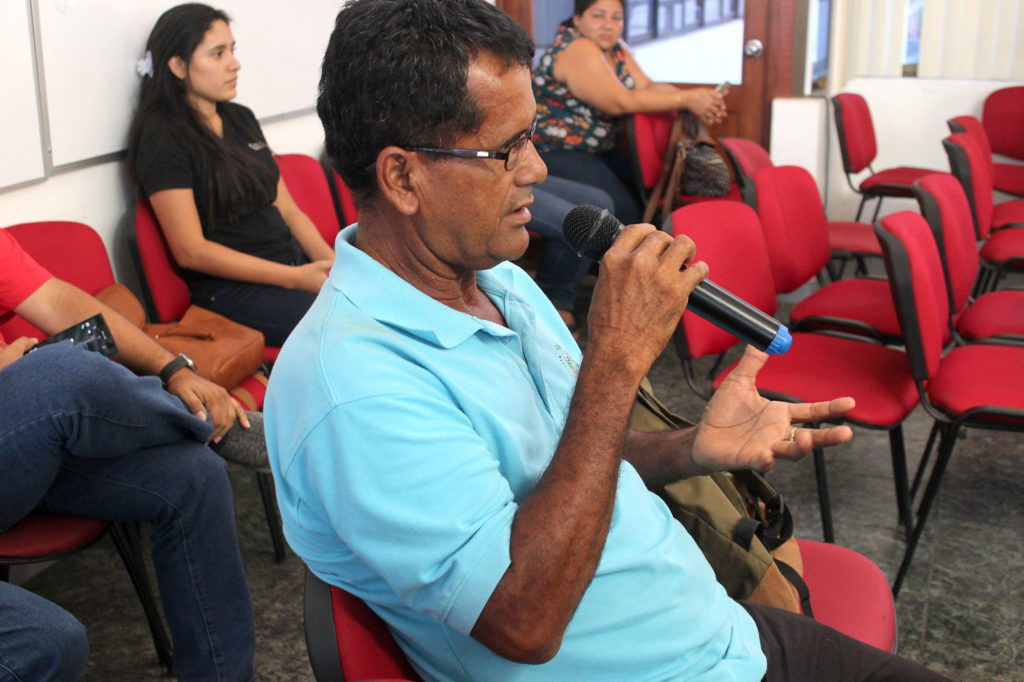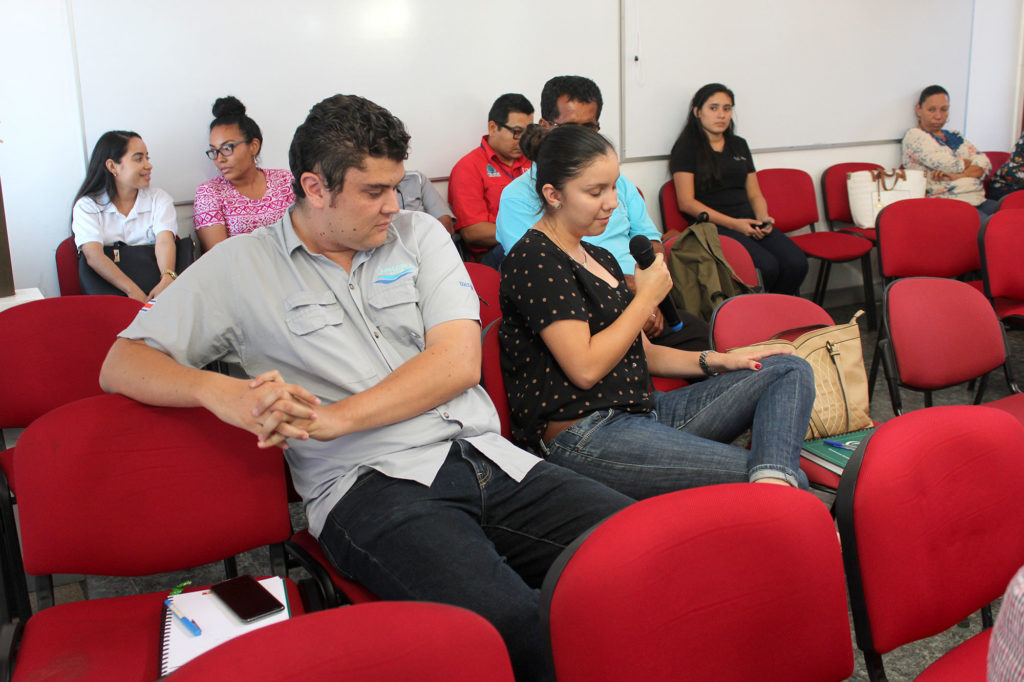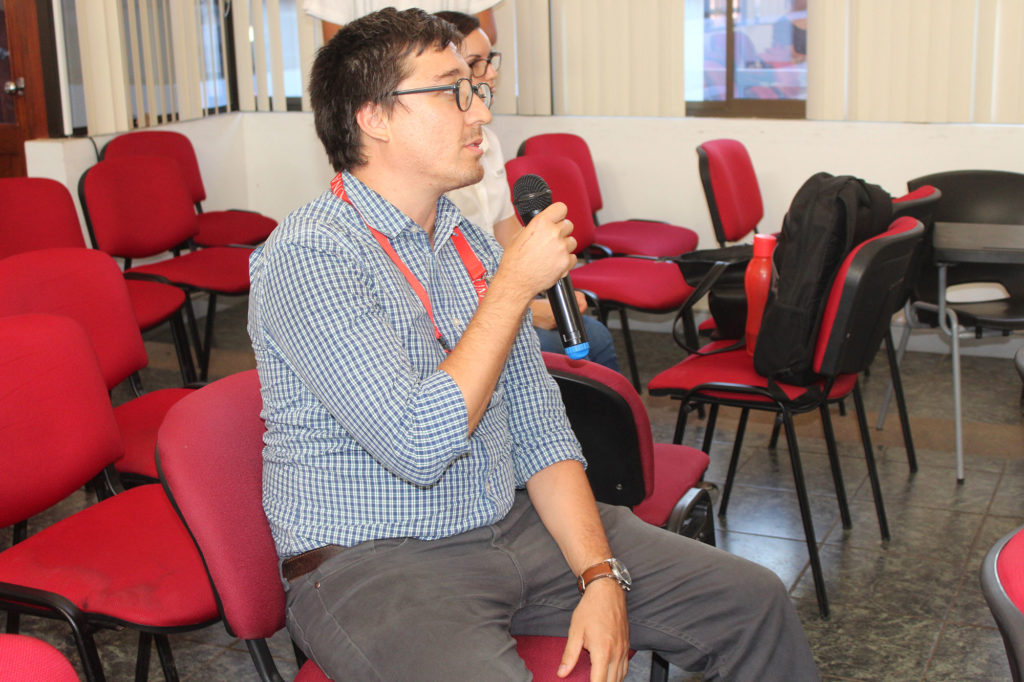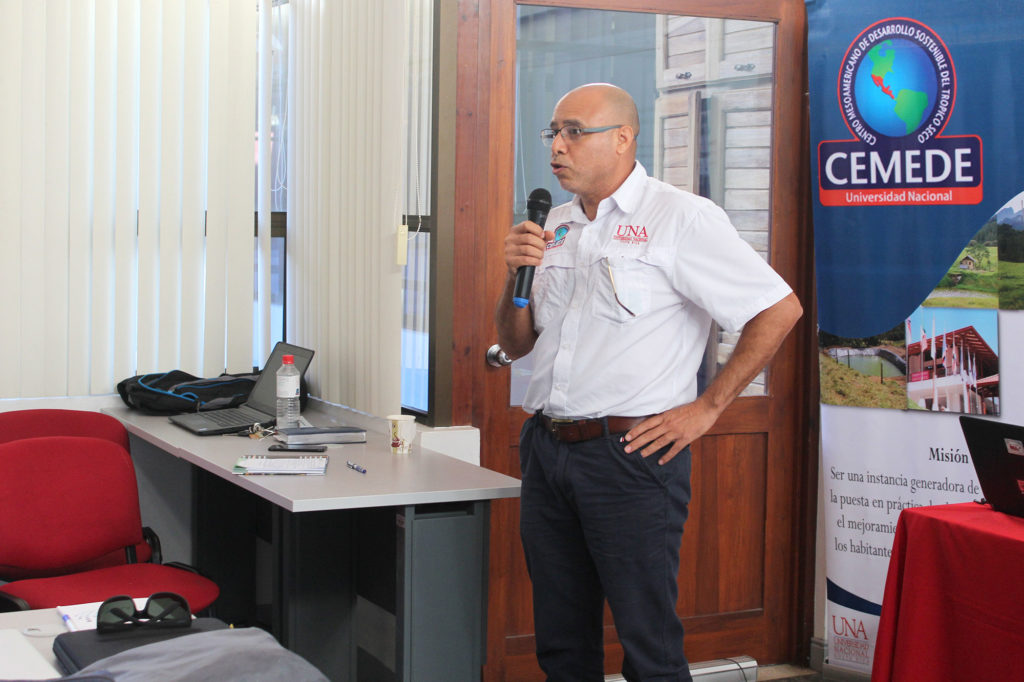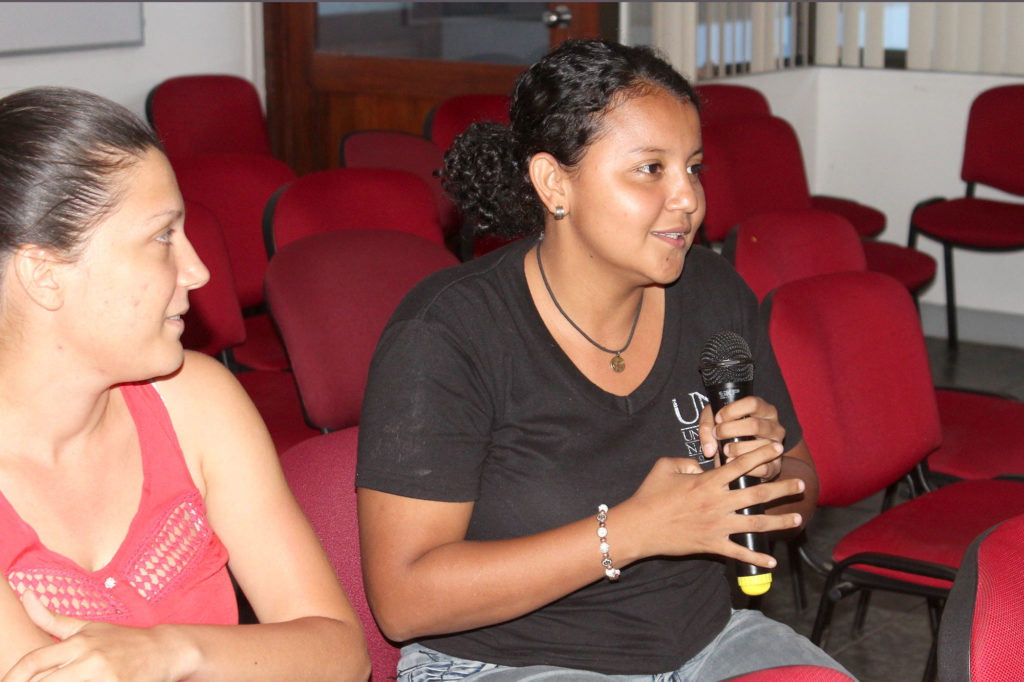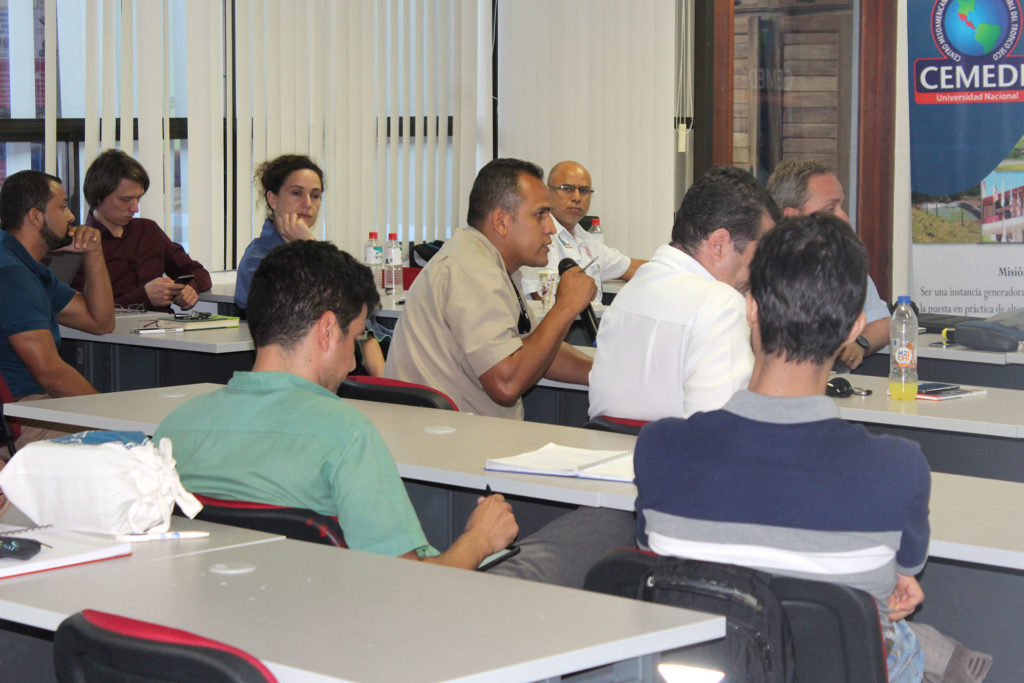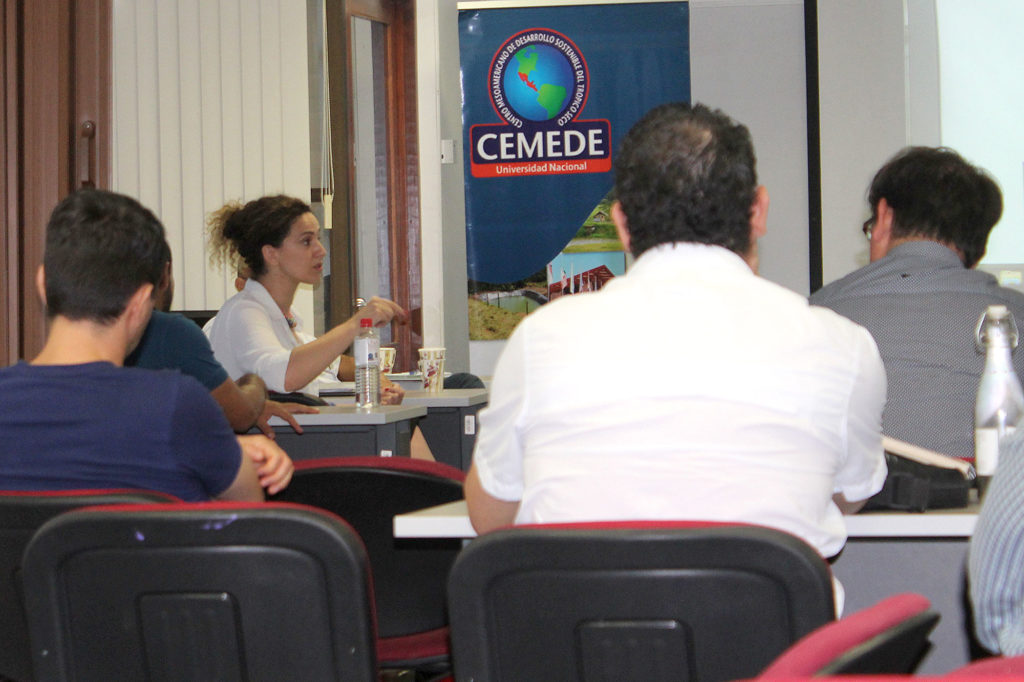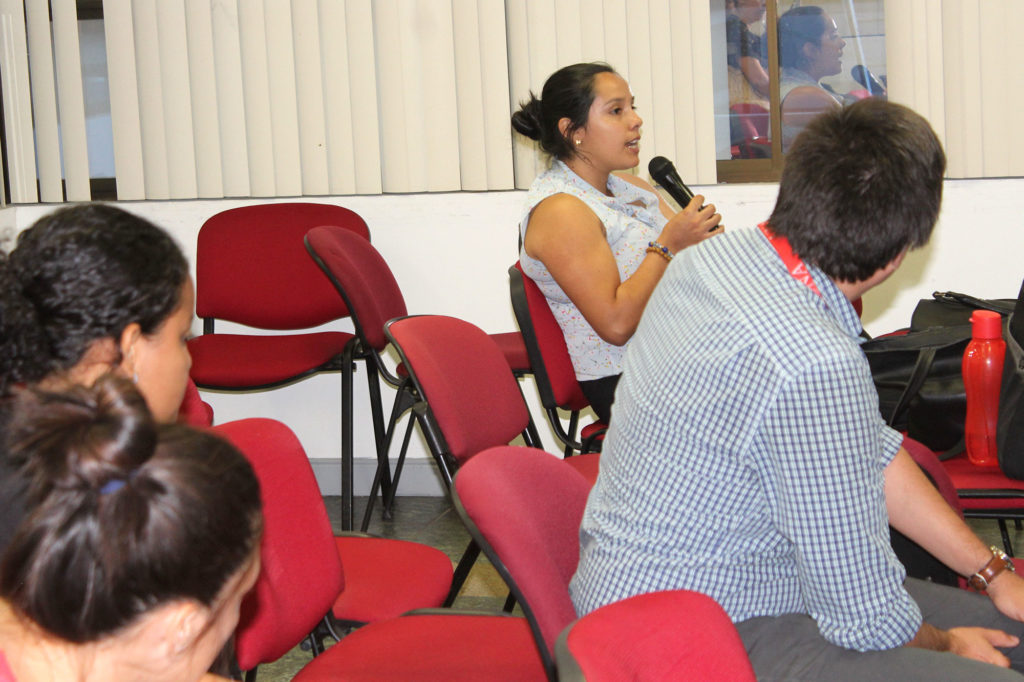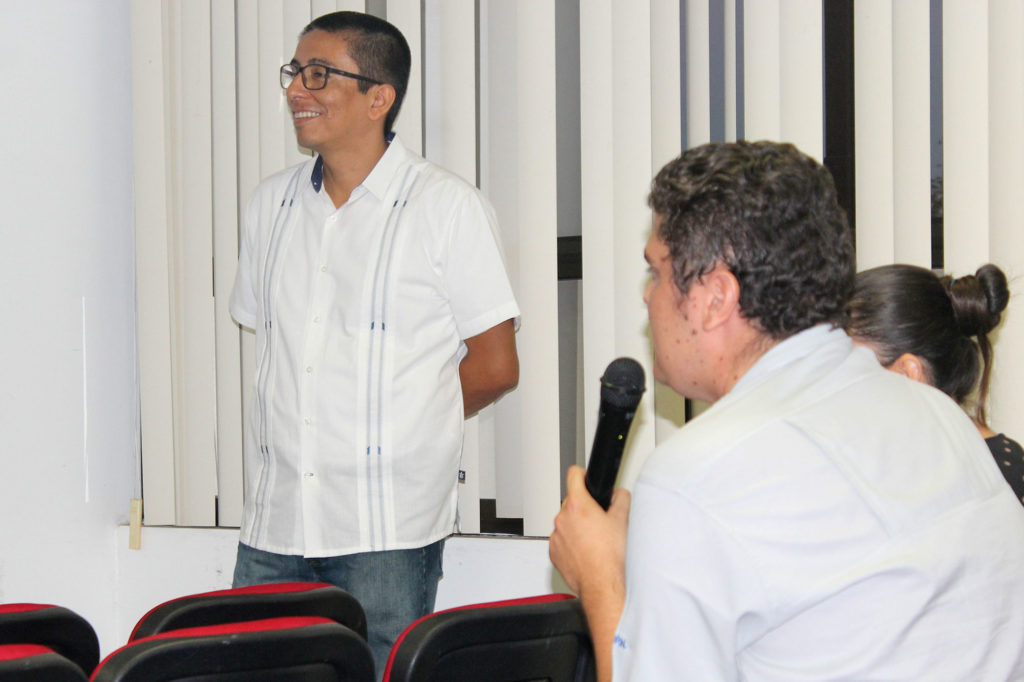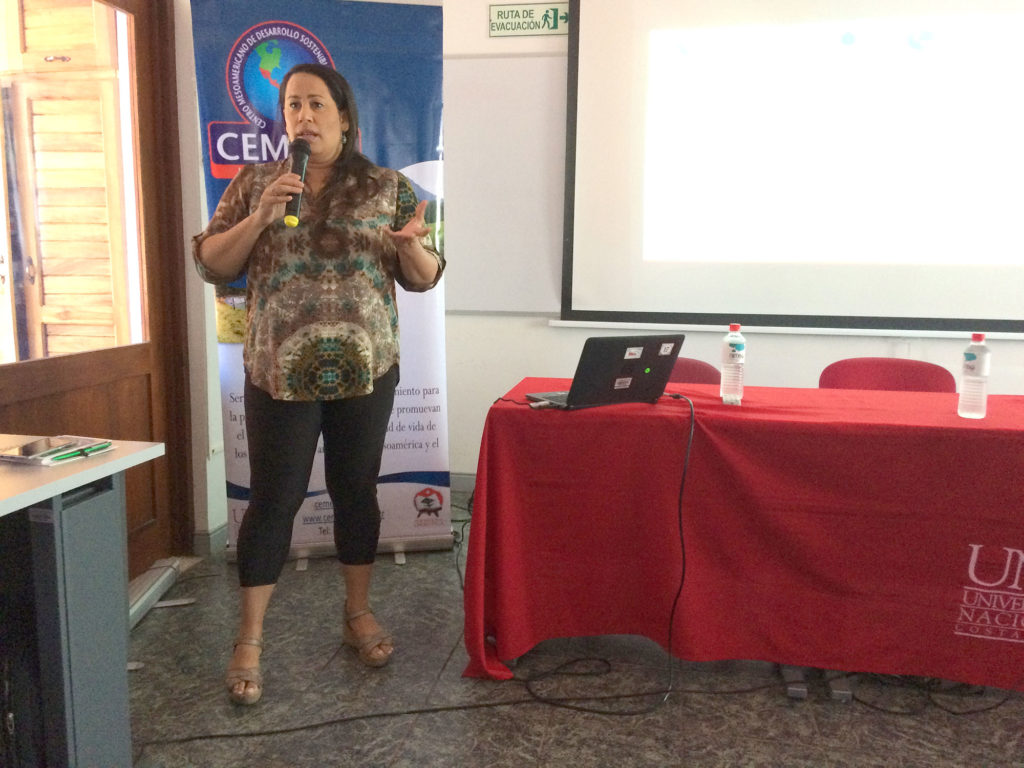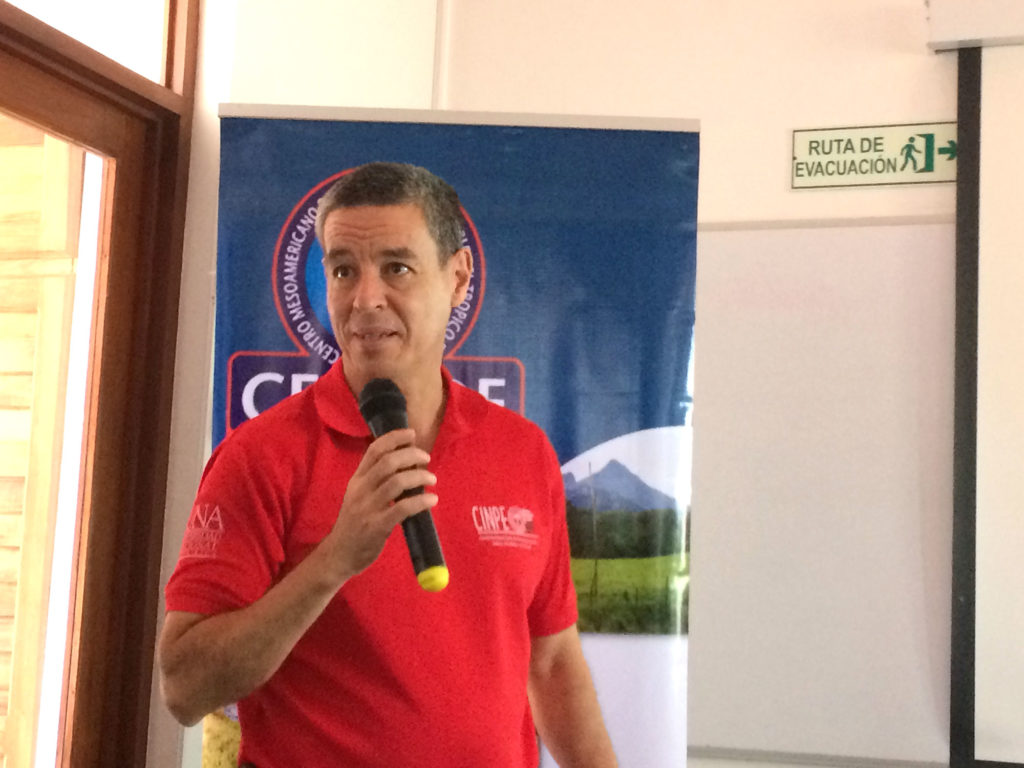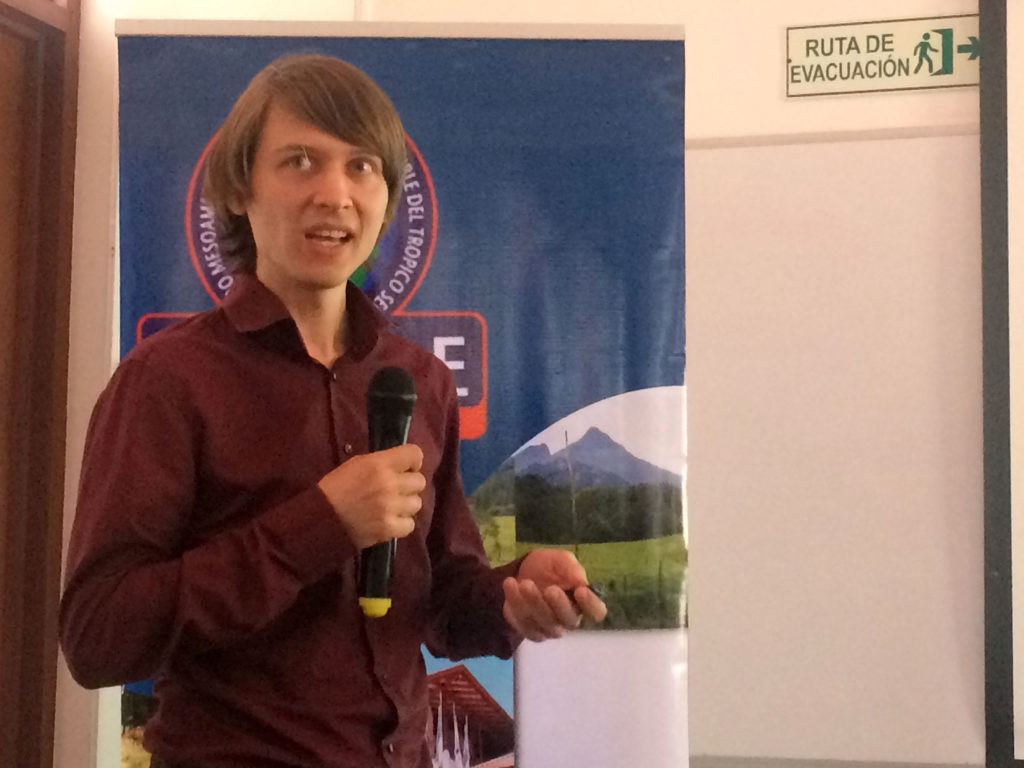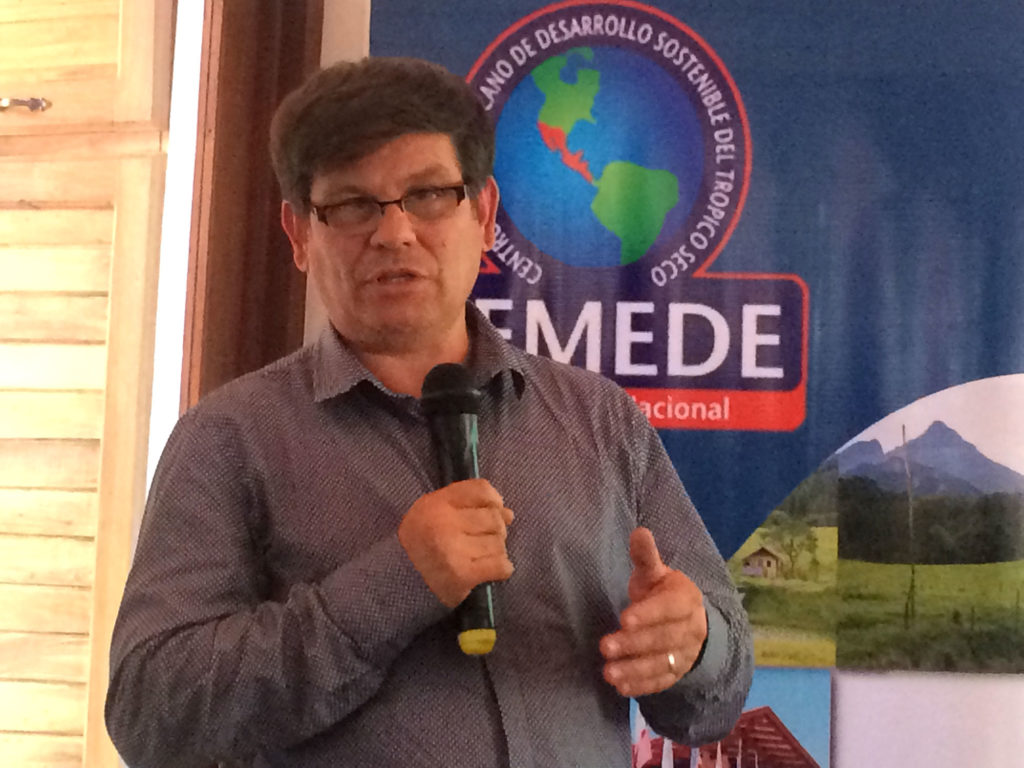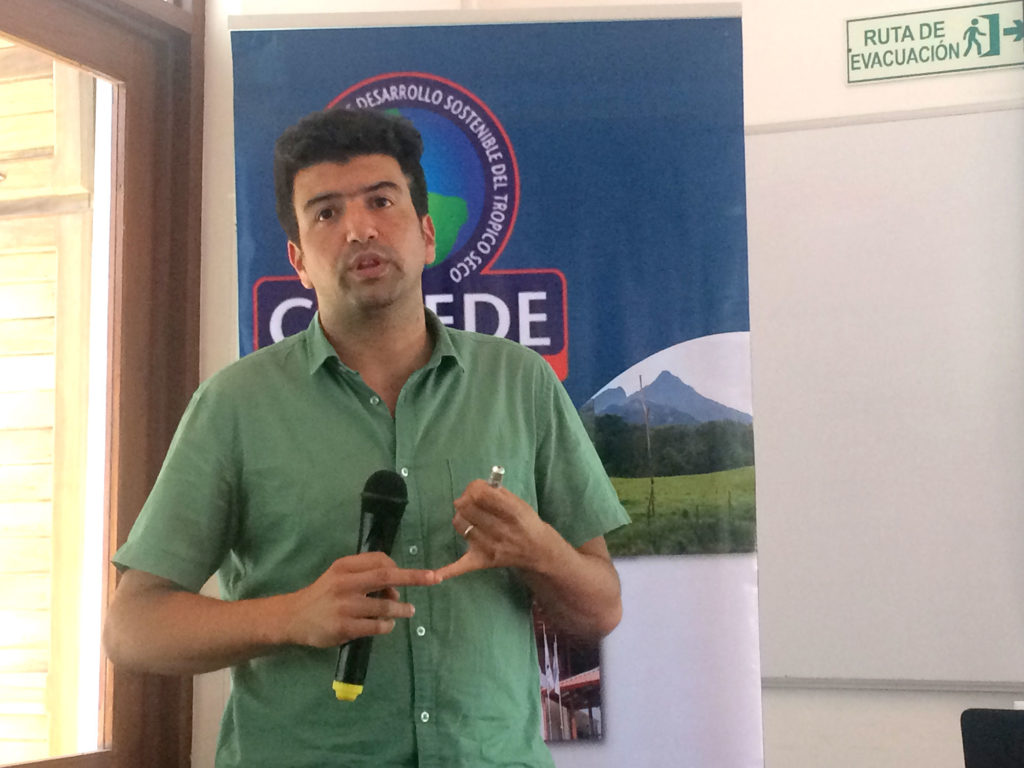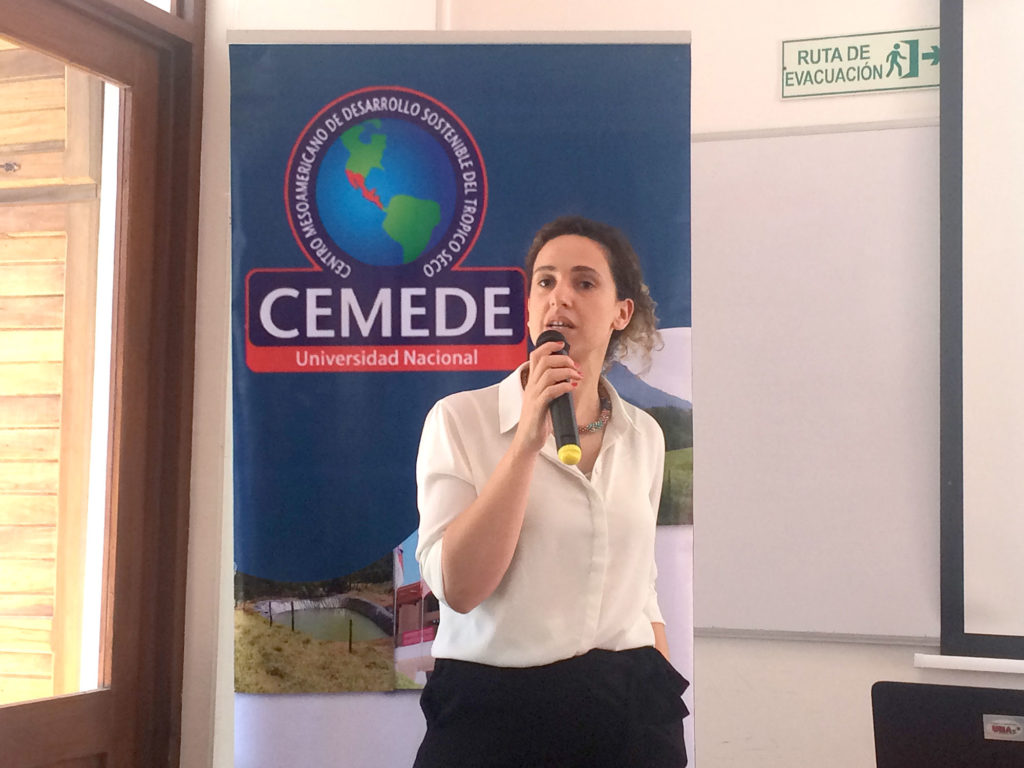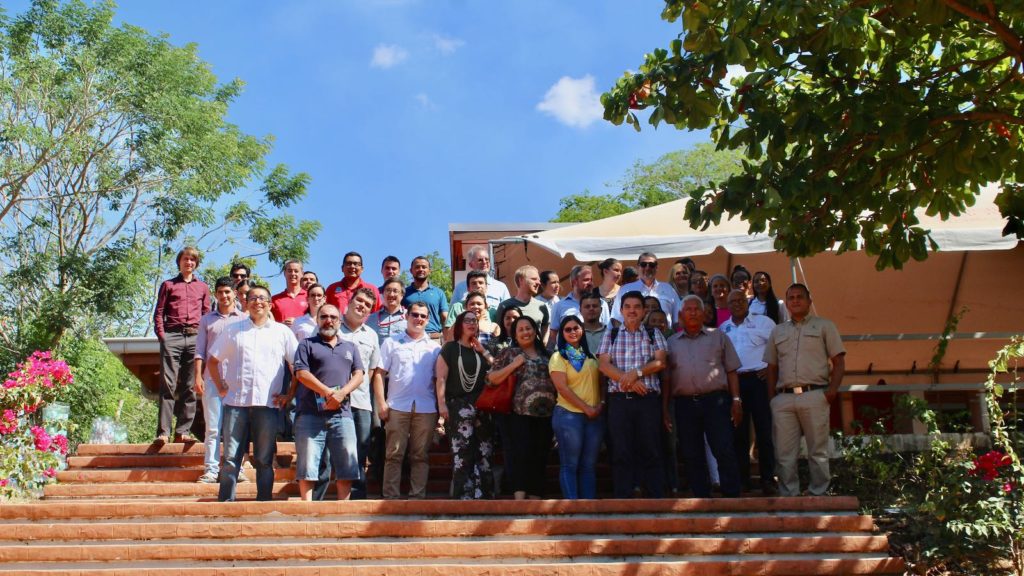
To kick-off the project, UNA and TUD jointly organised an international workshop that took place at the CEMEDE main campus in Nicoya, Costa Rica, on 26 March 2019. The aim of the workshop was to promote a space for information and discussion on green adaptation strategies for water security in the Central American dry corridor, with emphasis on Costa Rica’s Guanacaste region, and exchange experiences on adaptation and intervention strategies at international level. The workshop included four parts: A. Climate change, B. Saltwater intrusion, C. Groundwater recharge, and D. Governance, which were divided in two blocks: 1) Drivers leading to water scarcity in Costa Rica; and 2) Technical and non-technical interventions.
Introduction
After a warm welcome addressed by Mr. Víctor Julio Baltodano Zuñiga, Dean of the Sede Regional Chorotega campus of the National University of Costa Rica (UNA), the workshop was opened by Dr. Andrea Suárez Serrano with a brief introduction to water-related challenges in Guanacaste, Costa Rica. In continuation, Dr. Suárez presented two complementary research projects that were used as basis for the present workshop.
Session A. Climate change
The changes in climate patterns became obvious over the past decade and the impacts on different aspects of the society are multifold. In Session A, researchers from the University of Costa Rica discussed the mechanisms that cause droughts in the Central American Dry Corridor and the implications of climate variability on regional aridity and water scarcity. Dr. Hugo Hidalgo Léon, Dr. Eric José Alfaro Martínez and Dr. Paula Marcela Pérez Briceño from the Centre for Geophysical Research, University of Costa Rica (CIGEFI-UCR) presented results of studies on aridity and drought and discussed the impact of climate scenarios on the Central American Dry Corridor.
Session B. Saltwater intrusion
Saltwater from the ocean intrudes coastal aquifers and affects the water quality in the production wells that are close to the coast. This can further increase due to sea level rise and increased water demand pumping. As consequence: a) production wells are abandoned and new wells are drilled further inland, b) pumping rates are reduced (even to zero) during the peak dry season or saline water is pumped in the distribution network. In Session B, Mr. Roberto Ramírez Chavarría from the National Service for Groundwater, Irrigation and Drainage (SENARA) in Costa Rica provided an overview on saltwater intrusion cases in Costa Rica while Jun.Prof. Marc Walther from Technische Universität Dresden illustrated with practical examples how modeling can help in the management of affected water supply systems.
Session C. Groundwater recharge
Managed aquifer recharge (MAR) is used in several countries worldwide to enhance the natural recharge of groundwater systems. Successful examples demontrate the efficiency of the approach in arid regions characterized by low precipitations but also in areas with heterogeneous spatial and temporal distribution of water resources. In this session, Dr. Catalin Stefan head of Research Group INOWAS at Technische Universität Dresden, and Dr. José Pablo Bonilla Valverde from Instituto Costarricense de Acueductos y Alcantarillados (AyA), Costa Rica, reflected on the advantages of the technique and its contribution to the sustainable management of water resources, and discussed the opportunities for MAR implementation in Costa Rican context.
Session D. Groundwater governance
A significant amount of research on sustainable development is currently done but most outcomes are not easily available to local actors. Several approaches are proposed and discussed in order to increase the societal uptake of research results. These included the mapping of stakeholders and their interests, proposing co-participation and active involvement of stakeholders at different research stages, and promoting the dialogue between the academics and policy makers. In this session, Dr. Fernando Sáenz Segura from the International Centre of Economic Politics for the Sustainable Development (CINPE-UNA) introduced a concept focused on capacity for dialogue and co-construction of rural territorial development policies. The talk was followed by the presentation of a general transdisciplinary approach to complex water-related management centred on stakeholders assessment and analysis, talk given by Dr. Serena Caucci from the United nations University, Institute for Integrated Management of Material Fluxes and of Resources.
General discussion
The workshop was concluded with a plenary session with contributions from the participants. Oppinions were expressed on challenges and opportunities for the implementation of managed aquifer recharge in Costa Rica, the legal aspects associated with the development and adaptation of aquifer management plans, as well as ideas on rising awareness and using communication as supporting instrument in the decision making process.

